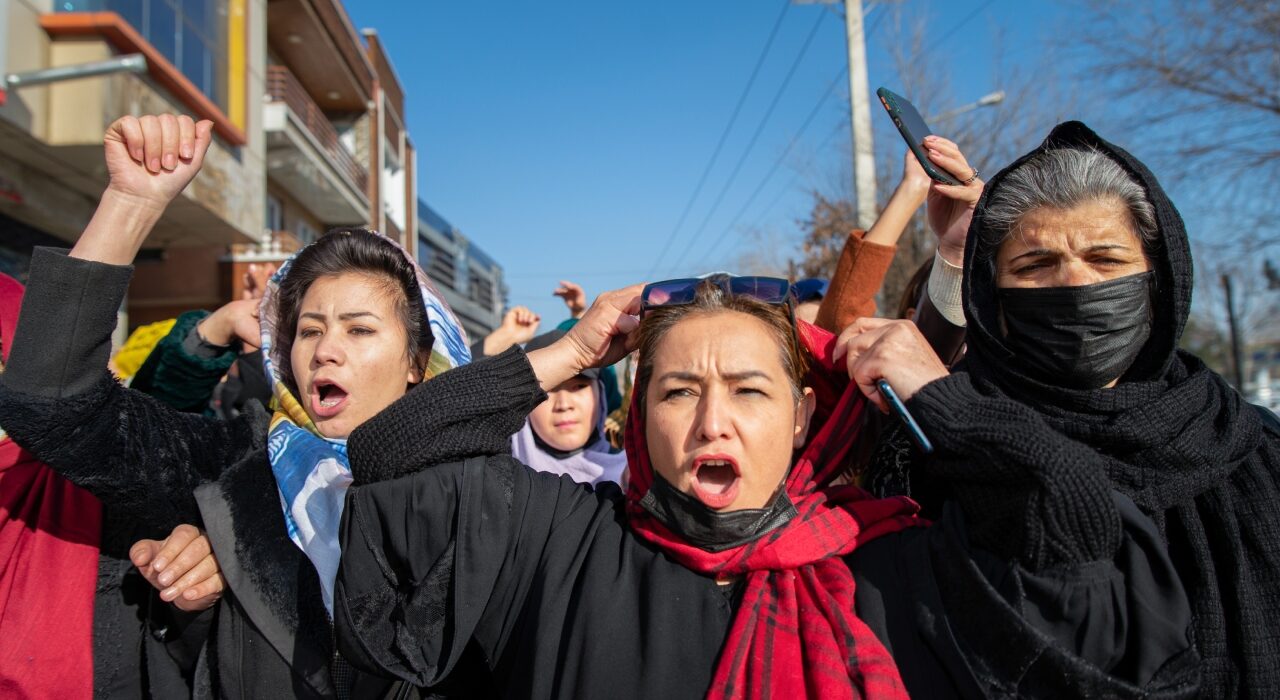The Taliban has imposed a cruel new set of “vice and virtue” laws upon their people. These laws have placed women’s rights in Afghanistan severely in check. Women are now required to wear heavy robes that fully cover them, including their faces, when in public. They are also not allowed to speak, sing, or read aloud-even within the confines of their own homes.
Women are not allowed to leave their homes unless they are fully veiled and accompanied by a male relative. Taxi drivers face punishment if they drive women around unaccompanied. Men, too, under the new laws, are supposed to cover themselves in public from their navels to their knees.
International reactions have been all over the place, strongly criticized. The UN’s special representative for the country, Roza Otunbayeva, denounced the laws as “an extension of intolerable restrictions on women’s rights in Afghanistan.” She was quoted as saying,
“It is a distressing vision for Afghanistan’s future, where moral inspectors have discretionary powers to threaten and detain anyone based on broad and sometimes vague lists of infractions. It extends the already intolerable restrictions on the rights of Afghan women and girls, with even the sound of a female voice outside the home apparently deemed a moral violation.”
Human rights activists raise voices for Women’s rights in Afghanistan
Other lawyers and human rights activists have weighed in, as well. Mir Abdul Wahid Sadat of the Afghan Lawyers Association says these laws violate both Afghan law and Islamic principles. Rights activist Fawzia Koofi and former parliamentarian Shukria Barakzai also worry the lack of outrage by the international community is only going to make the Taliban bolder.
Human rights organizations have termed the situation “gender apartheid.” This is already a situation where women are barred from education, employment, and public space. Afghan women have been made to be further isolated, more vulnerable, and not independent with the introduction of the new Taliban laws.
“From a legal standpoint this document faces serious issues. It contradicts the fundamental principles of Islam [where] the promotion of virtue has never been defined through force, coercion, or tyranny.
“This document not only violates Afghanistan’s domestic laws but also broadly contravenes all 30 articles of the Universal Declaration of Human Rights.”
However, the Taliban insist that this was done by Islamic law, and it was done to encourage virtue. Critics react by calling these laws highly patriarchal and authoritarian, saying the intended goal of the government is to completely discard women’s rights in Afghanistan. The Afghan women’s status remains very alarming; they hope to flee this repressive regime.
It shall be noted that during the Taliban regime, Afghanistan women’s sports teams also encountered similar challenges. In the name of religion, the rulers even discarded basic human rights such as education, which is obligatory ‘for all’ according to Islamic principles. Some incidents even include expelling female teachers from school depriving them of their bread and butter.
What Islam says about women’s rights?
Quran, the holy book in Islam, supports women’s rights, specifically women’s education. Considering it as a sacred right, the holy book says there shall be no gender discrimination. A hadith from Muslim’s Prophet reads, ‘“acquisition of knowledge is binding on all Muslims”.
Moreover, the Prophet’s wife Khadija is an ideal example when it comes to independence, earning, and stepping into businesses like trading. While men are considered caretakers of the family, violence is visibly unacceptable in the fastest-growing religion.
Also, see: Turkey Blacklists India, Backs Pakistan with Defense Export Ban
